Category | Nutrition
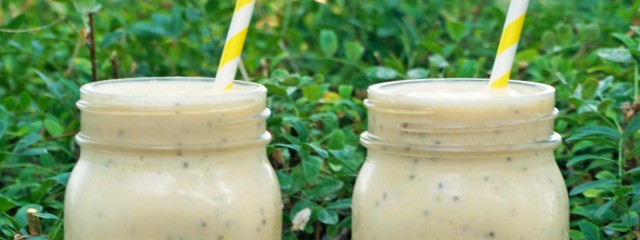
What Shall I Eat for Breakfast?
Date: 11 May 2017 | 0 Comment | Nutrition | Posted by: admin |
When you receive your food intolerance results and wonder what on earth you're going to eat in the morning, then try this recipe that my wife Lianne found recently by James Duigan. Called the 'Clean and Lean Super Breakfast', it contains all things good and none of the typical ingredients that come up in the food intolerance test we do. Serves 1 2 Tablespoons Oats, 2 Brazil Nuts, 2 Almonds, 2 Walnuts or Pecans, 1 teaspoon ground flaxseed, 1 tablespoon Pumpkin Seeds, 1 teaspoon Chia Seeds, 60ml Rice Milk, 60ml Filtered Water. Method Soak...
Continue Reading »
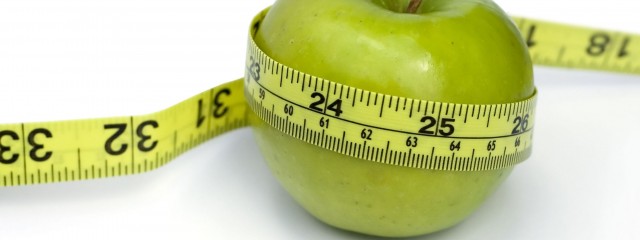
IgG Food Intolerance Testing; a Strategy for Weight Loss? – Dr Gillian R. Hart
Date: 24 Mar 2017 | 0 Comment | Nutrition | Posted by: admin |
Being obese or overweight arises from excess energy consumption, relative to expenditure, over long periods. Although eating patterns are influenced by many factors, such as cultural, social and commercial factors, the regulation of food intake and uptake in the body is a very complex process, which involves biochemical signals and hormones from many sources including the brain-gastrointestinal axis, fat stores and the pancreas. Even the fat cells, adipocytes, themselves are highly specialised to play important roles in energy storage,...
Continue Reading »
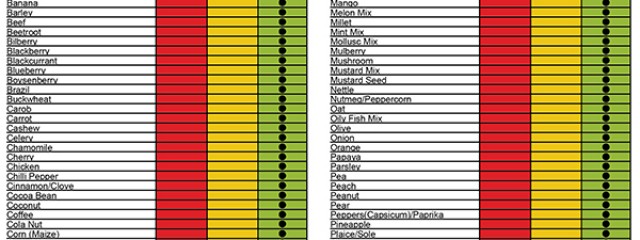
My Food Intolerance Results
Date: 07 Dec 2016 | 0 Comment | Nutrition | Posted by: admin |
Here's a copy of my results from the Lorisian food intolerance test. Yeast is the main irritant for me but I chose to exclude all of the irrittants (goats milk, egg white, and the listed botanicals) for a minimum of 3 months. This is the time needed for the gut to repair and tolerate the proteins once they are introduced again gradually.
Continue Reading »
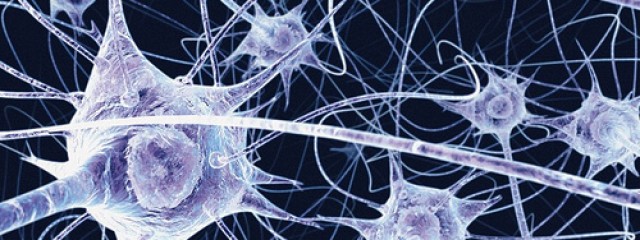
Could Alzheimer’s disease be ‘Type 3 Diabetes’?
Date: 05 Dec 2016 | 0 Comment | Nutrition | Posted by: admin |
This came up recently which I'd thought I'd share. Original text is from Cytoplan's Blog. Alzheimer’s disease has long been a condition of catastrophic consequences; a condition affecting around 26 million people worldwide, a high number of fatalities and a severe financial burden upon healthcare throughout the Western world. But need this be the case? Research is categorizing Alzheimer’s disease as being among the “diseases of civilisation” – meaning it is primarily caused by unhealthy modern Western diets and poor lifestyle...
Continue Reading »
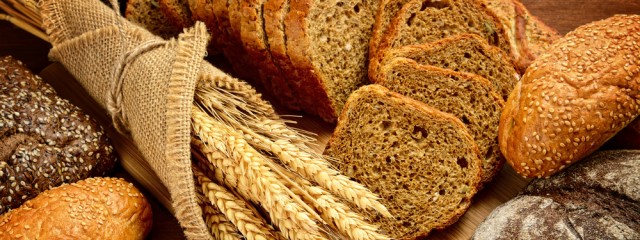
What is Gluten Intolerance?
Date: 29 Nov 2016 | 0 Comment | Nutrition | Posted by: admin |
If you have a food specific IgG intolerance to gluten, your body produces an inflammatory response to gluten proteins. Gluten is found in foods processed from wheat and related grains, giving elasticity to dough, helping it to rise and keep its shape. If you have gluten intolerance you should avoid eating wheat and similar grains. However, if you have wheat intolerance alone, you do not necessarily need to avoid gluten. Where to Look Gluten is found in wheat, rye, barley, and any other foods made with these grains. It can be difficult...
Continue Reading »
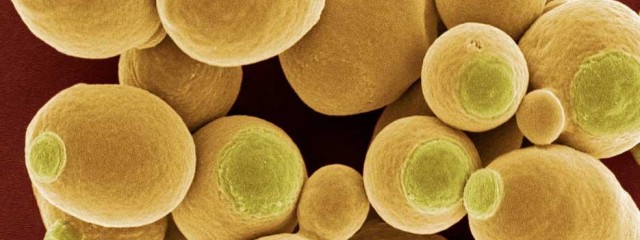
What is Yeast Intolerance?
Date: 28 Nov 2016 | 0 Comment | Nutrition | Posted by: admin |
If you have an intolerance to yeast, your body produces an inflammatory response to yeast proteins present in food and drinks consumed. Yeast is a living fungus which is used as an active ingredient in many products, especially baked goods and alcoholic drinks. Bakers use yeast to make dough rise and brewers use yeast to ferment sugar to make alcohol. If you have a yeast intolerance, you might also experience reactions to mushrooms, truffles, blue cheeses and malt which all contain fungus. It is also a good idea to reduce your intake...
Continue Reading »
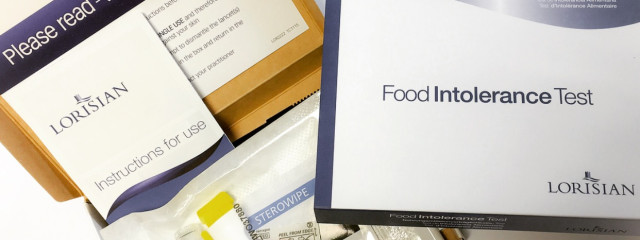
What is the difference between food intolerance and food allergy?
Date: 16 Nov 2016 | 0 Comment | Nutrition | Posted by: admin |
45% of the population suffer from food intolerance which, whilst not life threatening can cause many different symptoms. Digested foods are usually broken down into smaller fragments for easy absorption in the body. Sometimes larger fragments can pass through into the blood stream, causing the body to react to them as invaders, attacking them using antibodies called immunoglobulin G (IgG). IgG antibodies to foods are linked to inflammation in the body. Symptoms can be slow to develop and can take hours or days to appear. Food intolerance...
Continue Reading »
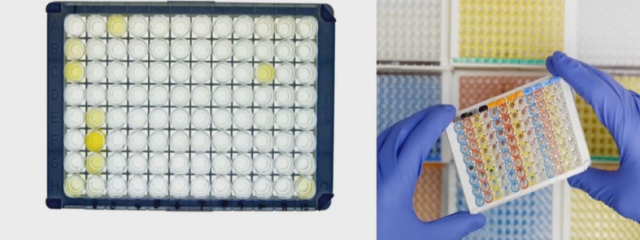
NEW! Food intolerance testing
Date: 13 Nov 2016 | 0 Comment | Nutrition | Posted by: admin |
I'm really pleased to introduce this new service to the clinic. It's something I've considered for a while now and I'm looking forward to improving the health of my patients, making you as robust as I can in an effort to eliminate trigger foods from your diet. Lorisian, who have kindly allowed me to use their service have been the market leaders for 30 years now. The association with York Test laboratories and York University has led them to be able to produce a test that allows you to have your own 'food fingerprint' - a real look at the way your...
Continue Reading »
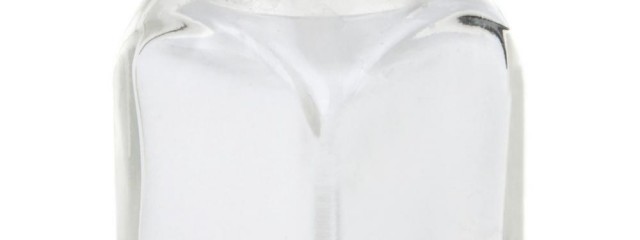
Salt levels misunderstood?
Date: 17 Sep 2012 | 0 Comment | Nutrition | Posted by: admin |
Salt – We Misjudged You. This article appeared in the New York Times on June 2nd 2012 by Gary Taubes. THE first time I questioned the conventional wisdom on the nature of a healthy diet, I was in my salad days, almost 40 years ago, and the subject was salt. Researchers were claiming that salt supplementation was unnecessary after strenuous exercise, and this advice was being passed on by health reporters. All I knew was that I had played high school football in suburban Maryland, sweating profusely through double sessions in the swamplike...
Continue Reading »

Vitamin D, what is it and why is it important to me?
Date: 31 Jan 2012 | 0 Comment | Tags: D,deficiency,nutrition,sunshine,vitamin | Nutrition,Steven Bond Chiropractic | Posted by: admin |
Many of you would have been made aware of a recent campaign for vitamin D and in particular, the dangers of lacking in it. Here is a short article to explain what it is, where it comes from and the dangers associated with it. What is Vitamin D and where do i get it? Vitamin D is a hormone, which encourages the absorption and metabolism of the bone minerals calcium and phosphorous and is therefore important in bone health. A severe lack of vitamin D can lead to bone deficiency diseases like rickets, a bone softening disease. People...
Continue Reading »
Copyright © 2011 Steven Bond Chiropractic
